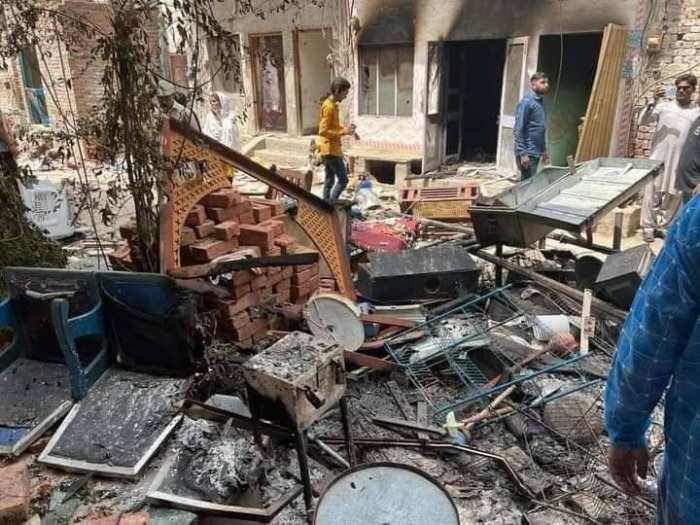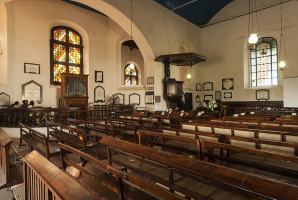Pakistani Christians still feel impact of Jaranwala riots 3 months later

In August, mobs of religious extremists ravaged more than 200 Christian homes and over 25 churches during devastating riots in Jaranwala, Pakistan. Immediately following the attacks, national and international support arrived, providing emergency food, clothing and limited financial assistance. But three months later, the long-term needs of many of the victims remain largely unaddressed.
The aftermath of the riots has left a lasting and wide-ranging impact on the well-being of Christian families in the area economically, socially and religiously.
Local pastor and activist Nazir Masih* recently spoke with Global Christian Relief about the devastation caused by the Jaranwala attackers in several Christian areas, ranging from large urban neighborhoods to smaller outlying regions.
"The main areas have received more prominent support from donors and aid organizations," he said. "But, unfortunately, smaller villages in rural contexts were overlooked. There was a lack of support reaching those communities."
Munir stated that in some of these neglected areas, walls of homes and churches were destroyed by tractors of religious fanatics from the village, leaving the victims with shattered homes, heightened poverty and increased trauma.
He emphasized the crucial need for prayers and support in these forgotten communities.
Smaller churches from these rural areas have counted themselves underrepresented in a Joint Action Committee formed by congregations in nearby Faisalabad to address the issues in Jaranwala.
Lacking adequate funds and assistance, these underprivileged churches have found an advocating voice through local leader and pastor Naveed Azeem*.
Azeem says the Pakistani government has reconstructed larger mainstream urban churches, but smaller ones are still awaiting attention.
"Only about 20% of the damaged churches have been rebuilt by the authorities in Jaranwala. Of the five pastors' homes which were vandalized and demolished, all remain in disrepair and have yet to receive necessary support," he said. "Many contractors have stopped construction and renovation work, claiming they haven't received further funds from the government."
Another local pastor, Samson Nayyar*, cites a concerning increase in religious hatred within the majority community towards the Jaranwala victims, who are often unjustly labeled as blasphemers.
This rise in religious bias has taken a toll on the social and economic well-being of the victims, he says. Many Christian employees working under non-Christian employers have faced unfair dismissal, exacerbating their financial hardships. Some victims are also experiencing social isolation in their villages.
The biases have extended into the behavior of authorities, hampering their cooperation with victims and leaving critical issues unattended. Out of 240 arrests for vandalism during the Jaranwala riots, 90 have been released by police due to factors including insufficient evidence, lack of police cooperation and victims' limited legal resources.
"The collection of evidence, such as footage of looters and vandals, and arresting them was the responsibility of the police," said Nayyar. "We helped by providing evidence, yet the attackers were released. We have also identified the places where the looted household valuables are kept by vandals."
Justice for the victims is also hindered by a shortage of available attorneys. Local lawyers' associations, under various pressures, have advised their members against taking cases on behalf of the Christian victims in Jaranwala. This is often due to a prevailing mindset that assumes the sufferers to be blasphemers.
"The vulnerable victims find themselves compelled to become parties in legal cases against the vandals," Nayyar said. "However, most of the vandals not only outnumber them but also wield greater social and emotional support. This power dynamic often results in the termination of most cases, as many vulnerable Christians lack the necessary support, financial resources, and means to engage in confrontations and legal battles with the vandals."
*Name changed for security reasons
Global Christian Relief (GCR) is America’s leading watchdog organization focused on the plight of persecuted Christians worldwide. In addition to equipping the Western church to advocate and pray for the persecuted, GCR works in the most restrictive countries to protect and encourage Christians threatened by faith-based discrimination and violence.





























